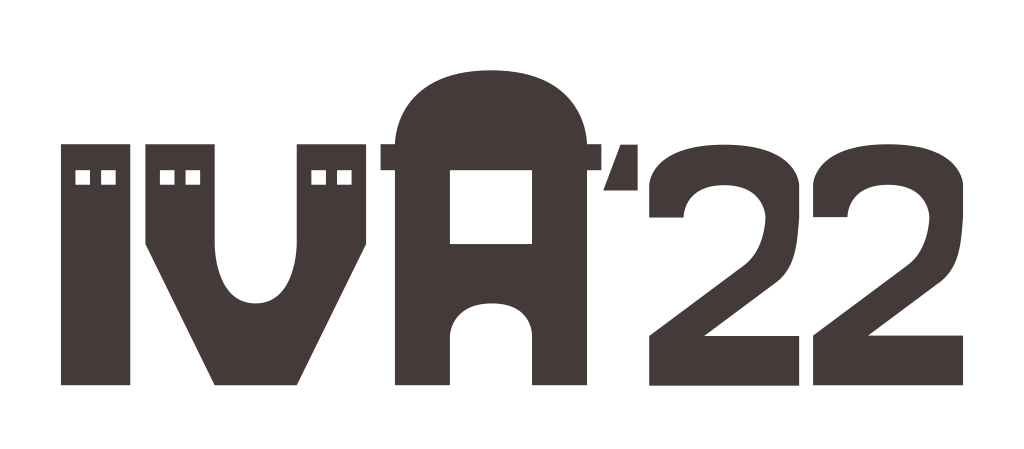The IVA Doctoral Consortium is a venue for early-career researchers to meet and discuss their research with other rising stars and experienced mentors in their field. The DC will be open to Ph.D. students with research relevant to the field and will be judged on a 2 page abstract of their doctoral research. Accepted authors will attend a short workshop prior to the conference with other accepted authors, where they will present and discuss their work to their peers, participate in talks by leaders in the field, and meet colleagues and mentors that will become future collaborators and friends. The IVA Doctoral Consortium aims to be highly selective and will choose applicants based on their research ability, potential, and engagement with the community. Topics are open to any IVA research (see the conference overview for a topic list).
Detailed Program
| 9:00 | Welcome by the Organizers |
| 9:15 | KEYNOTE Myrthe Tielman (Delft University of Technology) |
| 10:00 | Student Presentations 1: Verbal Interactions with Virtual Agents |
| Verbal Interactions with Embodied Conversational Agents Jonathan Ehret | |
| Characterizing Spoken Dialog to Improve the Language Capabilities of Conversational Agents Guido M. Lnders | |
| 10:30 | Coffee Break |
| 11:00 | Roundtable Discussion |
| 11:30 | Student Presentations 2: Applications of Virtual Agents in health care & beyond |
| Virtual Patients to Train Communication Skills of Healthcare Providers Mohammed Al Owayyed | |
| Persuasive virtual agents for peer pressure simulations in Immersive Virtual Reality – Designing for trainings in people with mild to borderline intellectual disability and alcohol use disorder. Simon Langener | |
| Understanding rural adolescent attitudes towards virtual humans for mental well-being promotion Rashi Ghosh | |
| I can motivate you to change your eating habits! Younsi Nezih | |
| 12:30 | Lunch Break |
| 13:30 | KEYNOTE Tiago Ribeiro (Soul Machines) |
| 14:15 | Student Presentations 3: Non-Verbal behaviors of Virtual Agents |
| People, Agents, and Avatars: nonverbal behaviours in immersive social interactions Georgiana Cristina Dobre | |
| Adaptive Gesture Generation for Goal-directed Interaction Support Hendric Voß | |
| Improving Agents’ Communication Capabilities Using Legibility in Multi-Agent Interactions Miguel Faria | |
| 15:00 | Roundtable Discussion |
| 15:30 | Coffee Break |
| 16:00 | Student Presentations 3: Diversity, Ethics & Perception |
| Designing Diverse Digital Agents for Human-AI Interactions Amama Mahmood | |
| Taking Emotional Expressions and Trust into Account Evania Lina Fasya | |
| How Do We Perceive High-quality Photorealistic Virtual Agents? Julija Vaitonytė | |
| 16:45 | Farewell |
| 19:00 | Social Dinner (optional) |
Who can submit
Any student enrolled in a doctoral program whose research is of interest to the IVA community can apply.
What to submit
A two-page extended abstract in which the applicant ties together their past, current, and/or proposed work, within the context of the overarching research question(s) addressed by their work. This may be followed by up to one page of references. This page of references is not counted as part of the page limit. All extended abstracts must be submitted in PDF format and conform to the general ACM SIG format. Templates are available at this link (https://www.acm.org/publications/proceedings-template – sigconf.tex or interim_layout.docx). In addition, ACM has partnered with Overleaf, where you can start writing in the format directly.
The extended abstract should cover the key research questions of their dissertation with their motivation, and a brief overview of the most important related work. The abstract should highlight the core approach of the student’s thesis, a high-level overview of any results to date, as well as expected outcomes and impact.
Applicants should also submit a 2-page research-oriented CV.
Where to submit
To submit please use the same submission website used for the IVA conference and select the “Doctoral Consortium” track (the track will be made available closer to the submission due date).
https://easychair.org/conferences/?conf=iva22
How it will be judged
Submissions to the IVA DC will be judged on the quality of the submission, potential research impact of the dissertation, a judgment on the potential benefits of the student’s participation in the consortium, and diversity consideration. Each application will be reviewed by at least two experts in IVA-related research.
Publication and Attendance
Successful applicants will be expected to attend the workshop, present and participate in the workshop, as well as present in the poster session of the main conference.
Important dates
- Submission due date: July 11th, 2022
- Notification date: August 10th, 2022
- Camera Ready date: August 21st, 2022
- Doctoral Consortium date: September 6th, 2022
